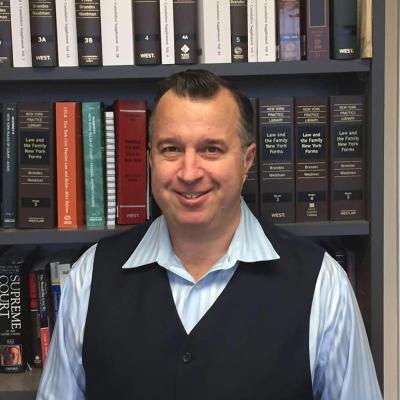The Absurdity of New York’s Law Barring Child-rape Victims from Seeking Justice As Adults
By Kevin Thomas Mulhearn
In recent weeks, the Daily News has been commendably focused on the compelling need to reform the New York statute of limitations for survivors of alleged childhood sexual abuse. New York has one of the most regressive laws on this issue in the entire United States; it bars child victims from seeking justice against predators unless they file a claim before they turn 23. But, unfortunately, that’s just half the problem. At the very same time, judges have been interpreting the law in a way that’s protective of institutions that may have been involved in lengthy cover-ups of abuse. Although typically, in cases involving fraud, the clock on a statute of limitations should not begin to run until the moment fraud is discovered or — upon reasonable diligence — would have been discovered, in sex abuse cover-up cases, New York courts have stuck to the hard-and-fast rule that if a victim is 23 or older, he or she is out of luck. Given the shame associated with sexual abuse, it is already difficult for a victim to bring a case against an individual teacher, coach, priest or rabbi by age 23. It’s absolutely absurd to pretend that young adults by that age would have discovered what they needed to discover to credibly accuse an institution of facilitating a pattern of abuse against scores of children. LOVETT:ASSEMBLY BLOCKS POL FROM SHOWING 'SPOTLIGHT' TO PUSH CHILD-RAPE LAW And so, what we have is a law that as applied gives almost total immunity to culpable institutions. A ruling by New York’s highest court 10 years ago made the problem especially grievous. In 2006, the Court of Appeals, in Zumpano vs. Quinn, held that 42 men who claimed that as boys they had been sexually abused by Brooklyn priests could not bring claims against the Diocese of Brooklyn. They were past the statute of limitations for sex crimes — but weren’t past the statute of limitations for fraud. It didn’t matter. Why? Because, in the court’s logic, the plaintiffs knew their abusers, knew their abusers’ employers — and thus should have been able to ascertain the relevant facts about the diocese’s misconduct if they had pursued their cases in court in a timely fashion after they were abused. N.Y. SENATE GOP 'TOO BUSY' TO FIX CHILD-RAPE LAW The decision totally ignored that the plaintiffs alleged that scores of children had in fact made timely inquiries or sexual abuse complaints to Church officials — but, they claimed, the diocese had engaged in a prolonged cover-up of the sexual abuse of children by its priests and failed to provide the relevant facts to those children. In other words, if an institution systematically hides the facts, victims will never know that an institution engaged in a pattern of protecting predators, and that institution will be let off the legal hook. In the decade since that decision, other New York federal and state courts have extended the logic into a theater of the absurd. As a result, self-protective institutions have good reason to withhold as much information as possible: to prevent sex-abuse victims from learning that others have had similar experiences, which then makes it much easier for these institutions to run out the clock on the statute of limitations. Consider the Second Circuit Court of Appeals’ recent decision in a case against Yeshiva University. In that case, Yeshiva’s own internal investigation (a summary of which was released in August 2013) concluded, or at least suggested, that school administrators had turned a blind eye and deaf ear to multiple sex abuse complaints to high-ranking administrators. But the appeals court embraced an extremely narrow view of the already restrictive statute of limitations, and ruled that the complaint's broad and detailed allegations about the school's own misconduct didn’t matter. John DeFrancesco, deputy majority leader of the state Senate, has justified the current statute of limitations by saying, “The further back the case is, the more difficult it is for anybody to defend themselves. Witnesses are gone. That's why a statute of limitations is there.” But DeFrancesco and a plethora of New York judges fail to understand that statutes of limitations are not designed to provide an impenetrable shield for powerful institutions that knowingly and maliciously engage in frauds, conspiracies and cover-ups to escape culpability when their depraved acts are finally revealed to the public. The status quo is an abomination. It must not stand. We must all insist that Lady Justice remain blind, but not dumb, cruel and callous. Mulhearn recently published “Ghosts of October: Reflections on Life, Death and Baseball,” which discusses some of his experiences representing abuse survivors in the Poly Prep and Yeshiva University cases.
|
.
Any original material on these pages is copyright © BishopAccountability.org 2004. Reproduce freely with attribution.
